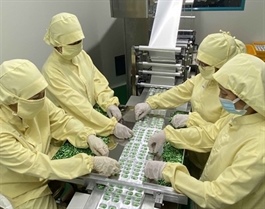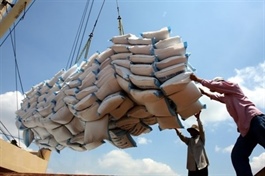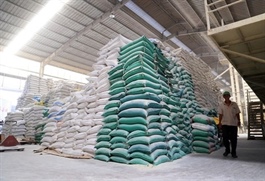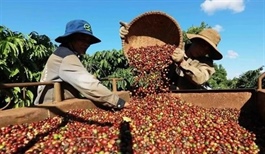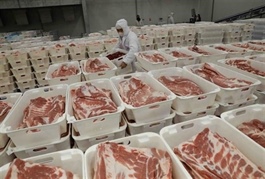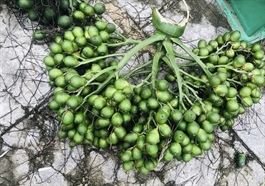Vietnamese coffee industry sets new revenue record
Vietnamese coffee industry sets new revenue record
Crop yields between 2023-2024 marked a historic milestone for Vietnam's coffee industry, with export revenues reaching record levels despite a decline in production volume.

According to the Vietnam Coffee-Cocoa Association (VICOFA), Vietnam exported nearly 1.45 million tonnes of coffee during the 2023-2024 season, spanning from October last year to September, generating $5.32 billion in revenue. While volume decreased by 12.7 per cent, export value increased by over 30 per cent, setting an all-time industry record.
The EU remained Vietnam's largest coffee export market during the 2023-2024 season, with a value of $2 billion, up 41 per cent from the previous season, accounting for 38 per cent of volume and 37 per cent of export value.
According to congthuong.vn, the coffee market witnessed unprecedented developments this season. Do Ha Nam, vice chairman of VICOFA, said, "For the first time, Vietnamese coffee commanded the highest prices globally, with Robusta export prices exceeding Arabica prices. London futures prices surpassed $5,000 per tonne, occasionally reaching beyond $5,500."
The EU's Deforestation Regulation is seen as a significant advantage for Vietnamese coffee exports, as the coffee industry here has prepared well.
"If this regulation is implemented as initially planned, Vietnamese coffee will continue to be a global favourite as the most compliant supplier," Nam said.
Coffee market expert Nguyen Quang Binh described 2024 as a miraculous year for the industry. Vietnamese and global coffee markets experienced an unprecedented price surge, with prices increasing by 1.5 times compared to the previous year.
Despite this, however, many coffee firms have faced challenges. "Rapid price increases amid limited supply have disrupted the supply chain. Export businesses haven't been able to deliver on time, leading to negative reactions from partners, buyers, and roasters."
Binh believes the market will continue to show volatility, emphasising the need for industry adjustments to maintain sustainable growth.
"Vietnam's coffee industry must address supply chain gaps and restore export partner confidence. Farmers should prioritise quality improvement over rapid expansion to avoid oversupply. Businesses should invest in processing and value-added products alongside raw coffee trading to ensure long-term sustainable growth," Binh said.








